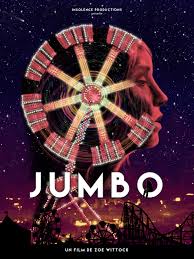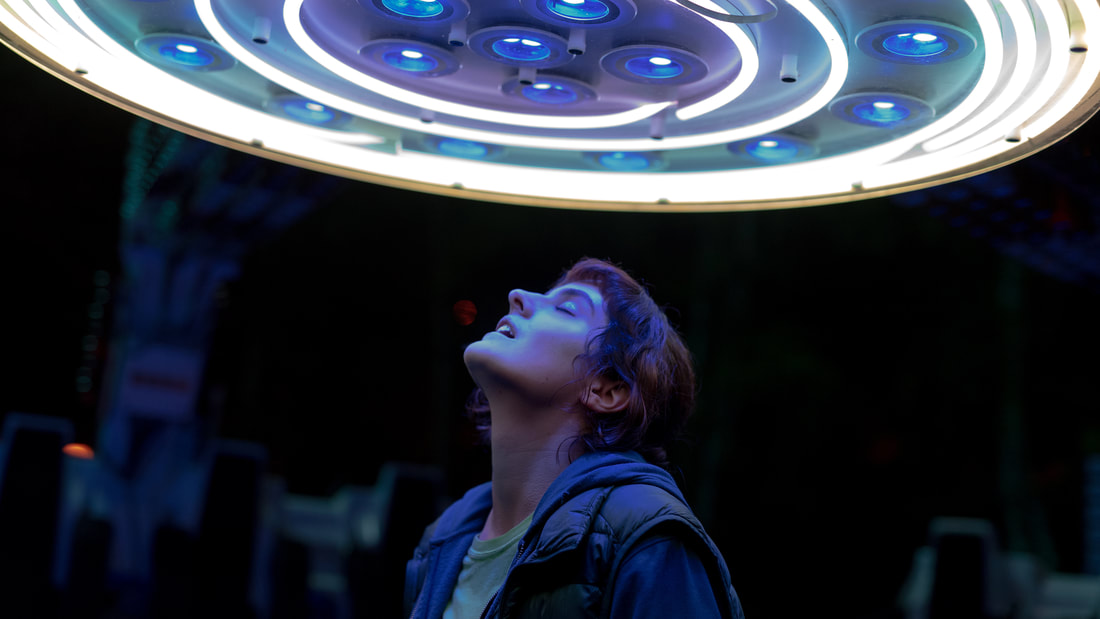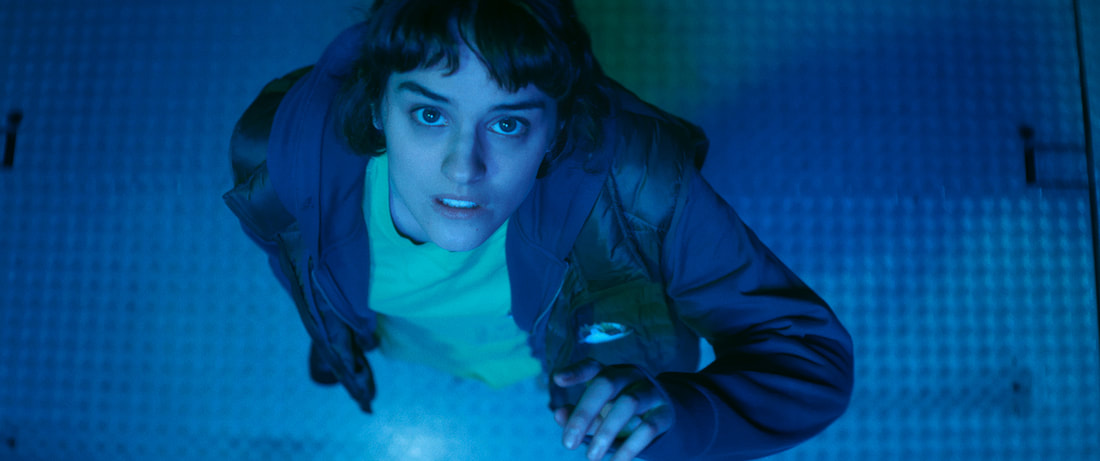|
Jeanne (Noémie Merlant, “Portrait of a Lady on Fire”) is an outsider who is unlike the people around her. She’s tormented by cruel men and lives with her leopard print-wearing, day-drinking mother Margarette (Emmanuelle Bercot) who loudly displays her own sexuality to the point of embarrassment. Her favourite place in the world is the local theme park and she spends hours creating illuminated models of the rides in her bedroom. Jeanne gets a job at the park and relishes just being there. She lies under the stars and lovingly cleans every part of the rides. On one of these visits, she has a deeply emotional experience with one of the rides “Move-It” which she nicknames “Jumbo”. She doesn’t just love it, she is IN love with it. She has a joyous connection with this inanimate object that she doesn’t have with any human. As word gets out that she loves a fairground ride she has to face the judgement and questions of her friends, family and colleagues. As the fate of the ageing ride comes into question Jeanne faces a race for acceptance before her heart is broken. The inspiration for the film came from the story of Erika Labrie, an Olympic archer who married the Eiffel tower in 2004. Upon talking to her, director Zoé Wittock found her to be one of the most grounded people she’d ever met. Underneath the unusual premise for this film lies a deeply affecting drama which had me completely invested from the start. The rollercoaster is both a character in its own right and a simple object. This blurring of the line brings us closer to Jeanne as we will an inanimate object into life, knowing it can’t be really alive. Some scenes are surreal and uncomfortably sexual – you know what’s being suggested but at the same time, it’s strange and unsettling as the metaphor is stretched too far for reasonable comprehension. But the rollercoaster is not phallic, it’s a claw shape. It’s not a replacement for either a heterosexual or homosexual relationship. It’s about feelings, not function. One line sums it up nicely – “It’s not about sex it’s about something else”. In fact, the reality of sex with a man is unpleasant and functional. She receives no joy from it whatsoever. But when riding the rollercoaster she’s ecstatic. The lights and sounds of the ride help us to invest in Jeanne’s feelings towards it elevate the film from an oddball dramedy into something much deeper. The flashing colours against the night sky and the pulsing music are quite an experience that’s hard to describe. It is suggested that Jeanne might be autistic but this is never made clear. It’s just that she’s different. Noémie Merlant performs the shy and immature Jeanne to great effect. She is sincere and emotionally honest despite the premise. This strong and believable performance is one of the main reasons why the film works so powerfully and isn’t just a farce. The relationship with her mother is a little too conveniently tied up towards the end but there is enough of a journey through the rest of the film for it to be plausible. This film is a lot more complex and emotionally affecting than it may seem on the surface. The visuals are so strong they punch you in the eyeballs and the soundscape pulses through your chest. I’ve never been so invested in the actions of a fairground ride and I’m so glad I got to meet Jumbo. Comments are closed.
|
AuthorHi, I'm Caz. I live in Edinburgh and I watch a lot of films. My reviews focus mainly on women in film - female directors or how women are represented on screen. Archives
December 2021
Categories
All
|





 RSS Feed
RSS Feed
